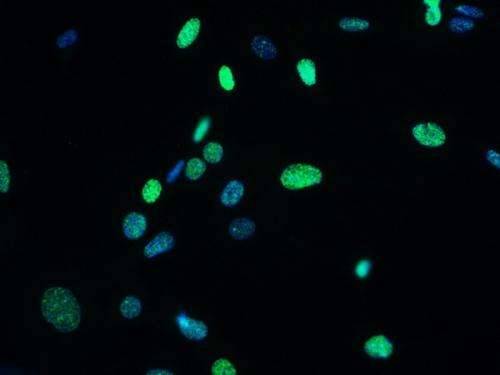Repairing DNA lesions

Repair of DNA lesions is essential for mammalian development. Notably, DNA lesions in cells caused by genotoxic agents results in arrest of cell cycle and ultimately in cell death. In response, DNA polymerase ζ (Polζ) is a translesion DNA polymerases that repair DNA damage and relieve cell cycle arrest.
However, the role of translesion DNA synthesis in mammalian development is remains unclear.
Now, Tetsuo Kunieda and colleagues at Okayama University report that Polζ plays an essential role in mammalian development by using a mutant mouse with defective Polζ function.
The researchers found repro22—a chemically induced mutant mouse—showed sterility with germ cell depletion, decreased body weight, and partial lethality during embryonic development. The abnormalities of the repro22 mouse were identified as being caused by a mutation in Rev7 gene encoding a subunit of Polζ.
Furthermore, cells of the repro22 mouse showed decreased proliferation, increased apoptosis, and arrest of cell cycle with accumulation of DNA damage after treatment with the genotoxic agent.
These results demonstrated that Polζ is essential for mammalian development including germ cell development via repair of DNA damage.
More information: "A missense mutation in Rev7 disrupts formation of Polζ, impairing mouse development and repair of genotoxic agent-induced DNA lesions." Khalaj M, Abbasi A, Yamanishi H, Akiyama K, Wakitani S, Kikuchi S, Hirose M, Yuzuriha M, Magari M, Degheidy HA, Abe K, Ogura A, Hashimoto H, Kunieda T. J Biol Chem. 2014 Feb 7;289(6):3811-24. . Epub 2013 Dec 19.
Provided by Okayama University

















